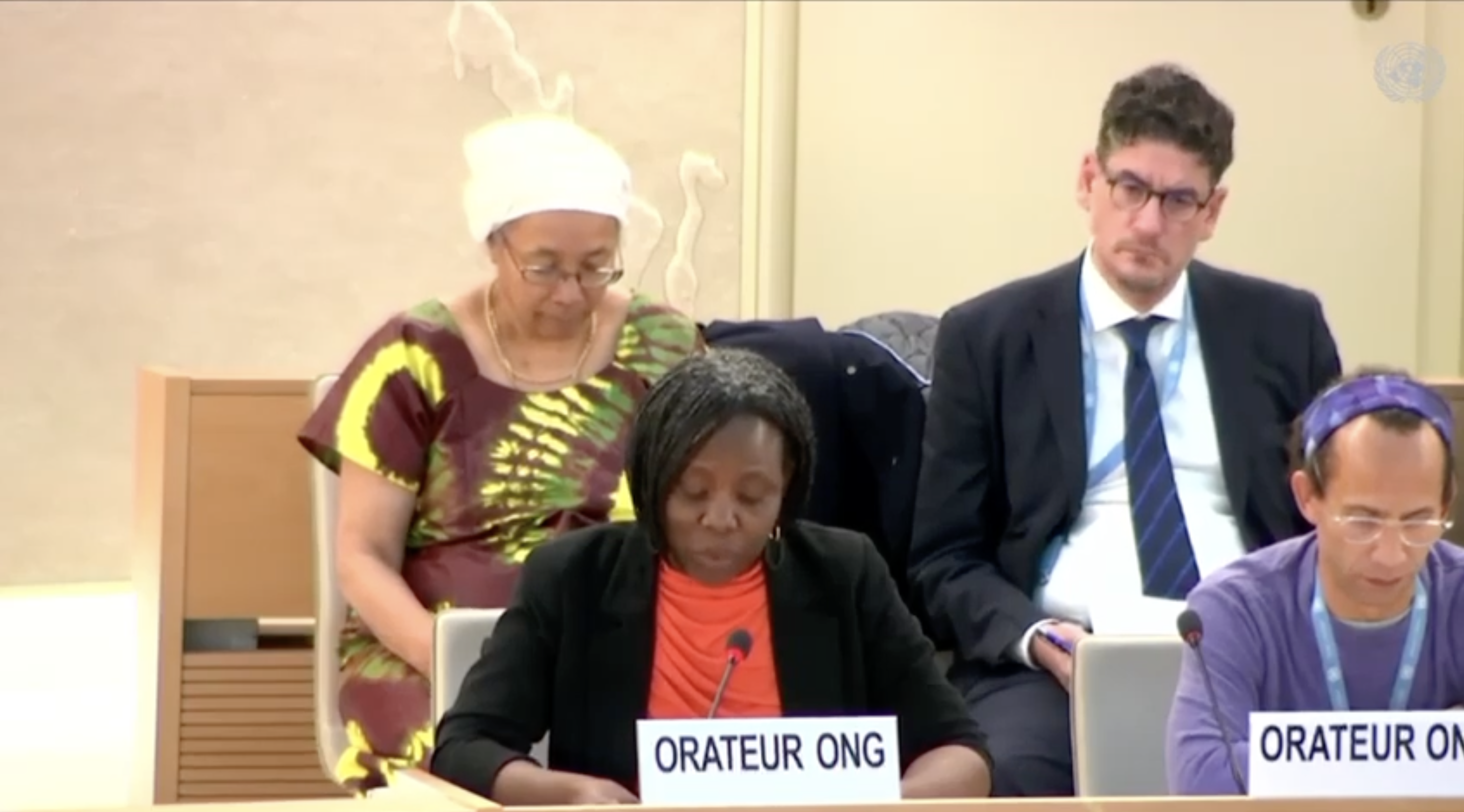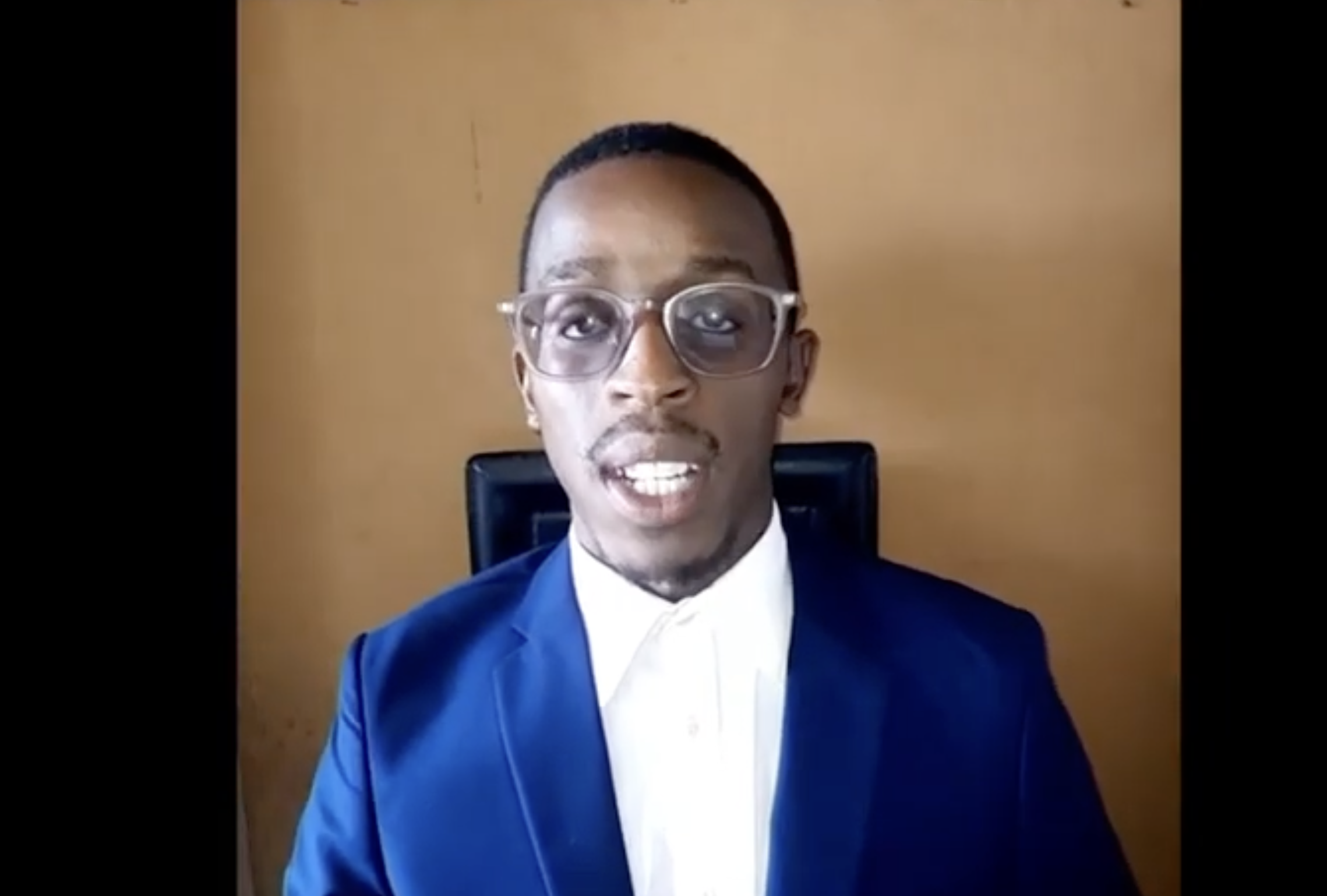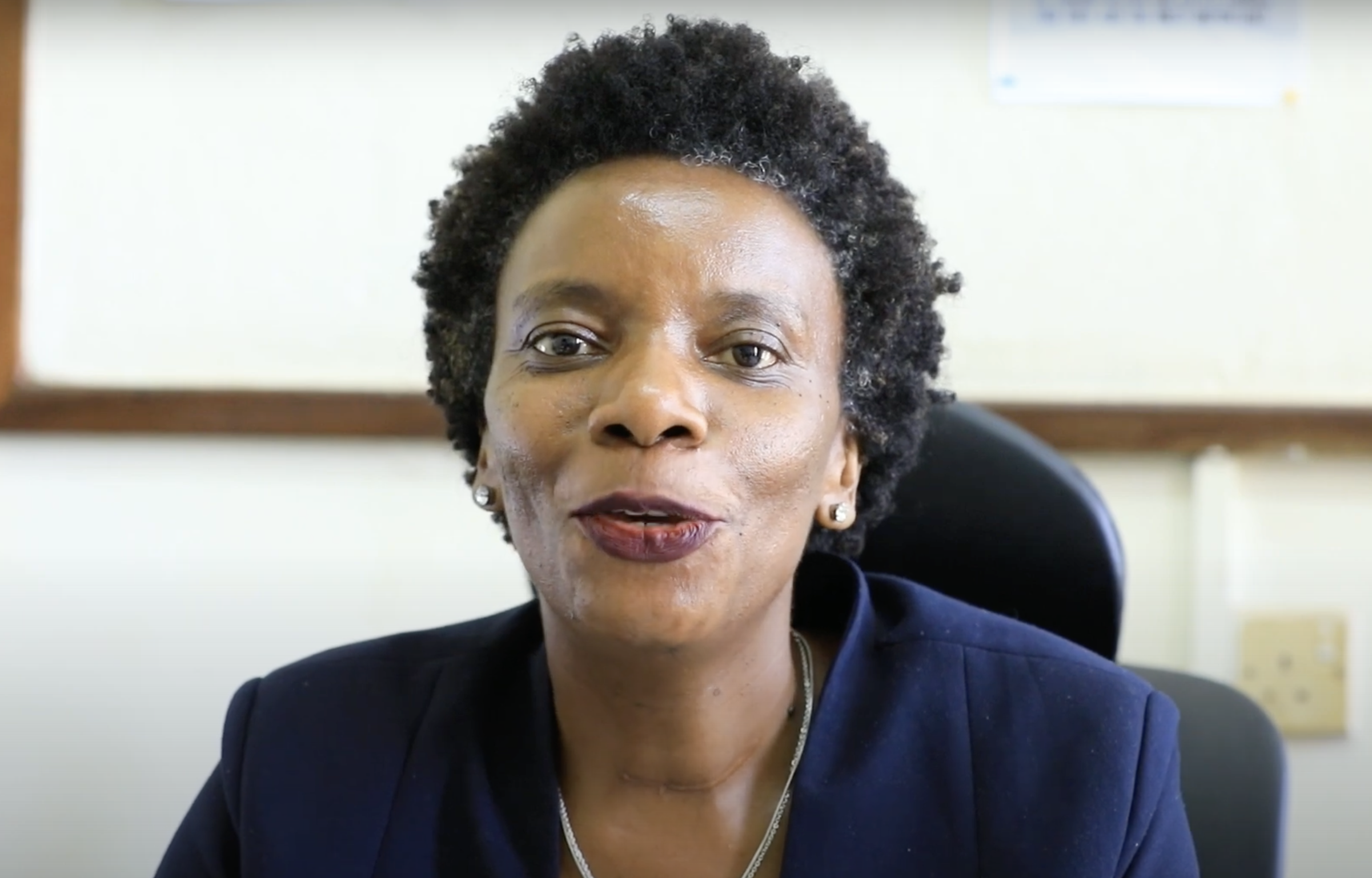Russia Human Rights Situation in Ukraine Continues to Grow More Dire
The 54th Session of the Human Rights Council
11th September – 13th October 2023
Agenda Item 3: Interactive Dialogue with the Independent International Commission of Inquiry on Ukraine
25th September 2023
By Conall Corrigan / GICJ
Executive Summary
During its 21st and 22nd meetings, the 54th Regular Session of the Human Rights Council (HRC) considered the report of the Independent International Commission of Inquiry on Ukraine (COI) on the human rights situation in Ukraine resulting from Russian aggression.
Mr. Erik Møse, Chairperson of the Commission, noted that the report of the COI raises further concerns about the human rights and humanitarian situation in Ukraine. He highlighted that Russian authorities have committed a range of violations of international human rights law (IHRL) and international humanitarian law (IHL) throughout Ukraine. In the view of the COI, many of these violations amount to war crimes and include unlawful killings, attacks on civilians, torture, rape, and forced transfers and deportations of children.
Mr. Møse informed the Council that the COI continues to uncover evidence of war crimes committed by Russian armed forces in Ukraine and noted the spread and gravity since their last report. The Commission expressed gratitude to the Ukrainian government for cooperating with its investigation and lamented the fact that all communications to the Russian Federation regarding access to areas in their control remained unanswered. The COI emphasised the importance of providing judicial and non-judicial accountability including measures that support the needs of victims such as mental health and psychosocial support.
Geneva International Centre for Justice (GICJ) reiterates its support for the work of the Commission and applauds its efforts to document and analyse the evidence of Russian violations of international human rights law and international humanitarian law in Ukraine. It is essential that the international community, and all investigative teams involved in documenting these violations perpetrated in the region, coordinate efforts with the COI to hold all actors accountable for any crimes they may have committed.
Background
On the 24th of February 2023, an urgent debate by the HRC on ‘the situation of human rights in Ukraine stemming from Russian aggression’, as requested by Ukraine, was held on the 3rd and 4th of March 2023. As a result of this meeting, member states adopted resolution 49/1 on the ‘Situation of human rights in Ukraine stemming from the Russian aggression’, which condemned the abuses and violations of IHRL and IHL resulting from the Russian Federation’s actions against Ukraine. The adoption of the resolution included the establishment of a COI, consisting of three human rights experts, to be appointed by the President of the HRC for an initial period of one year. The resolution mandates the COI to identify perpetrators and collect and analyse evidence of violations with a view to securing legal accountability. The resolution was adopted by a vote of 32 in favour, 2 against and 13 abstentions.
Following continued reports of alleged war crimes committed in the Kyiv region of Ukraine, the General Assembly adopted draft resolution A/ES-11/L.4 titled ‘Suspension of the rights of membership of the Russian Federation in the Human Rights Council’, which revoked Russia’s membership of the HRC.
In its first report, published in October 2022, the COI presented its findings about events during late February and March 2022 in the four regions of Kyiv, Chernihiv, Kharkiv, and Sumy, as requested by Human Rights Council resolution S-34/1. During this first phase of its investigations, the Commission has found that war crimes and violations of IHL and IHRL have been committed in Ukraine since 24 February 2022 predominately by Russian armed forces.
In its report submitted to the 52nd regular session of the HRC, the Commission has determined that Russian armed forces have carried out attacks with explosive weapons in populated areas with an apparent disregard for civilian harm and suffering. It has documented indiscriminate and disproportionate attacks, and a failure to take precautions, in violation of international humanitarian law
The report discussed during the 54th Session of the HRC presents a detailed account of all the evidence gathered and analysed by the Commission since its creation. The Commission of Inquiry on Ukraine has concluded that a wide range of grave human rights and humanitarian law violations and corresponding crimes, many amounting to war crimes, and some of them possibly to crimes against humanity, have been committed in many regions of Ukraine and the Russian Federation.
Summary of the Report of the Special Rapporteur on Extreme Poverty and Human Rights
Mr Møse noted that well into the second year of the conflict, people in Ukraine have continuedto cope with the loss and injury of loved ones, large-scale destruction, suffering and trauma, as well as the economic hardship that has resulted from it. The COI voiced concern about continuous evidence of war crimes committed by Russian armed forces in Ukraine and stressed that thousands have been killed and injured and millions remain internally displaced or out of the country. Mr. Møse informed the Council that the COI is now undertaking more in-depth investigations regarding unlawful attacks with explosive weapons, attacks affecting civilians, torture, sexual and gender-based violence and attacks on energy infrastructure. He added that he hoped this may clarify whether torture and attacks on infrastructure amount to crimes against humanity.
The COI expressed its appreciation for the Ukrainian government’s cooperation with its investigation as well as victims and witnesses for sharing their experiences. However, the Commission expressed dismay at the fact that all communications addressed to the Russian Federation remain unanswered. The Commission’s report clarified that attacks with explosive weapons in populated areas have led to extensive destruction and damage and have been the leading cause of death and injury among the civilian population. In recent months, the COI has documented explosive weapons attacks against residential buildings, a functional medical facility, a railway station, a restaurant, shops, and commercial warehouses. These attacks have led to civil casualties, the damage or destruction of key facilities and the disruption of essential services and supplies. The COI underlined its concern that attacks continue to take place harming civilians and medical institutions with protected status. The breach of the Kakhovka hydroelectric power plant dam in June and the consequent floods have destroyed or rendered hundreds of dwellings uninhabitable causing economic and ecological problems. The COI is currently investigating the cause of the breach and its impact on the civilian population.
Mr Møse noted the Commission has focused its investigations on violence against personal integrity in regions which fell under Russian occupation for long periods, namely in Kherson and Zaporizhzhya. The COI has collected further evidence that the use of torture by Russian armed forces in areas under their control has been widespread and systematic. The principal targets of torture were persons accused of being informants of the Ukrainian armed forces. Moreover, the Commission has found that torture mostly occurred in various detention centres controlled by Russian authorities. Similar methods of torture were used across different facilities during interrogation sessions mainly aimed at extracting information from the victims. In some cases, torture was inflicted with such brutality that it caused the deaths of the victims. The COI has found in the Kherson region, that Russian soldiers raped and committed sexual violence against women ranging from 19-83 years of age. Mr. Møse added that the COI will continue to map and document such facilities reinforcing its findings that torture was widely used by Russian authorities.
The COI also voiced concern for the many devastating consequences the armed conflict has had on children. The Commission has continued to investigate individual situations of the alleged transfer of unaccompanied minors by Russian authorities to the Russian Federation. However, Mr Møse expressed regret that there is a lack of clarity and transparency on the full extent, circumstances, and categories of the number of children transferred. He added that insufficient knowledge about the precise number and circumstances of children transferred may hamper an expeditious return process.
The Commission also stated that allegations of genocide in Ukraine for example some of the rhetoric transmitted in the Russian state and other media outlets may constitute incitement to genocide. The COI is continuing to investigate such issues and reiterated its concern about the scale and gravity of violations and corresponding crimes that have been committed in Ukraine by Russian armed forces and emphasised the need for accountability. Mr Møse also recounted the need for Ukrainian authorities to expeditiously and thoroughly investigate the few cases of violations by its own forces. The COI’s report stressed the importance of judicial and non-judicial accountability including measures that support the needs of victims including mental health and psychosocial support. It reiterates the need for coordination and the avoidance of duplication between the various actors in the accountability space and notified the Council that is continuing its efforts to collect evidence that may be of use for judicial accountability purposes. Regarding reparations, the COI urged the international community to ensure that national reconstruction programmes or property restitution programmes are not designed to the detriment of victim’s reparations.
Speaker of the Country Concerned
As the speaker for the Russian Federation was not present, the floor was given to the Ukrainian delegation.
Ukraine noted that the world has witnessed Russia’s brazen assault on the values of the UDHR. He added that accountability for Russia’s criminal legacy in other parts of the world was largely lacking which has paved the way for its full-scale invasion of Ukraine. However, the representative was grateful to the UNHRC for its rapid response to the armed conflict by setting up the COI with a clear mandate to investigate violations of International Human Rights Law (IHRL) and International Humanitarian Law (IHL) as well as related international crimes in the context of Russian aggression against Ukraine. The work of the COI and its findings are an integral aspect of the accountability architecture and he commended the Commission for its efforts and expressed Ukraine’s commitment to continuing its cooperation and dialogue during their investigation. However, he noted that restoring justice will require not only years but decades of commitment from all parties.
The delegate informed the Council that currently, Ukraine is investigating and prosecuting over 100,000 incidents of war crimes ranging from wilful killing, summary executions, torture and ill-treatment to indiscriminate shelling and unlawful confinement. More than 19,000 Ukrainian children have become victims of the ill-fated practice of forcible transfer and deportation, planned, and implemented by the top leadership of the Russian regime. He noted that Ukrainian children are stripped of their citizenship and put up for adoption. This amounts to a war crime and a crime against humanity that also could amount to the crime of genocide in line with the 1948 Genocide Convention. Similarly, thousands of Ukrainian POWs are subjected to torture and conflict-related sexual violence as part of an established policy Russia uses against detainees. In the view of the representative, this pattern of crimes and existing evidence establishes a reasonable basis to believe that crimes against humanity are being committed against the Ukrainian national group by Russia. The conduct of the Russian invasion and subsequent occupation has been accompanied by numerous violations on discriminatory grounds, detailed in part in the COI's previous reports. Therefore, documenting and ensuring full accountability both at the national and international level is paramount along with the reparation of the damage suffered by millions of victims and survivors. The representative of Ukraine concluded by underlining that the COI’s dedication, efforts and contribution to the quest for justice and accountability for establishing sustainable peace and stability remains indispensable.
Interactive Dialogue
The European Union reiterated its condemnation of Russia’s war of aggression as well as the continued military support for Russia provided by Iran and Belarus. The delegate expressed support for Ukraine’s independence, sovereignty, and territorial integrity within its internationally recognised borders. The EU stated that not only is Russia putting food security at risk but in areas under occupation, Russian authorities have committed wilful killings, indiscriminate attacks on civilians, unlawful confinement, torture, rape, and other forms of sexual and gender-based violence as well as unlawful deportations of children. The representative displayed concern that the growing body of evidence presented in the report shows that many of these violations amount to war crimes. The EU lamented the systematic and widespread nature of these violations and agreed with the commission that comprehensive accountability is paramount.
Denmark on behalf of the group of friends of accountability following aggression against Ukraine emphasised that the provisions on torture apply at all times and in all circumstances. However, despite commemorating the 75th anniversary of the UDHR countless Ukrainians have suffered torture and other grievous acts at the hands of the Russian authorities. The delegate noted that Ukrainians are being deprived of their inherent dignity and their aspiration to live free from fear. He added that the report of the COI is clear and that the widespread use of torture and inhuman treatment committed by Russian authorities may amount to crimes against humanity. The group applauded the efforts of the Commission to document evidence that shows a wide range of grave human rights and IHL violations which may amount to war crimes. The delegate stressed that the group will continue to seek full accountability including for the crime of aggression to ensure justice for the victims.
The representative of the United States of America underlined that the work of the COI is essential to ensuring accountability for thousands of victims of the conflict in Ukraine. The delegate added that the COI’s report paints a dire yet realistic picture of the current situation in Ukraine for civilians, especially children. The United States accused Russian forces and authorities of subjecting children to sexual violence, forcing them to witness horrific crimes and forcibly transporting them from their homes in violation of international law. The representative expressed her shock that so many children have been separated from their loved ones and some have been offered up for adoption in Russia.
The Chinese delegation began by noting that the current state of the Ukrainian crisis has its profound and complex causes. He added that the prolonged and expanded nature of the crisis will continue to negatively impact global economic recovery and development, which is not in either party's interest. The representative stressed that a ceasefire, dialogue, and negotiations are needed to avoid an escalation of the crisis. The delegate underscored that confrontations between different blocs should stop and relevant parties should respond positively to the rational calls of the international community and maintain calm and restraint. China stressed that all countries' sovereignty and territorial integrity should be respected and the purposes and principles of the UN Charter should be observed. The delegate concluded by noting that every effort conducive to the peaceful settlement of the crisis should be supported.
NGOs and National Human Rights Institutions
NGOs and National Human Rights Institutions roundly condemned the actions of the Russian Federation in Ukraine and discussed the dire circumstances facing civilians in Ukraine. Many groups focused on the plight of thousands of civilians who have been arbitrarily detained and subjected to various rights violations including the deliberate denial of medical attention in the case of many prisoners. They stressed the need to ensure that processes are established to help identify civilian detainees, report on their health status, and facilitate their return to Ukrainian-controlled territory. Speakers praised the work of the COI for ensuring accountability for the gravest offences under international law and many added that the atrocities and war crimes committed by Russia bear the clear markers of genocide. Groups highlighted that the human rights situation in Ukraine continues to remain dire and criticised Russian forces for deliberately damaging critical infrastructure in clear violation of IHL. Many speakers also emphasised the global impact of Russia’s withdrawal from the Black Sea Grain Initiative which will undoubtedly undermine global food security and the cooperation that underpins international agreements aimed at ensuring a stable food supply.
Position of Geneva International Centre for Justice
Geneva International Centre for Justice (GICJ) welcomes the reporting of the COI, the work of the UN human rights monitoring mission in Ukraine and relevant UN special procedure mandate holders and their efforts to document human rights violations in Ukraine stemming from Russian aggression. The ongoing conflict in Ukraine has decimated cities across the country and continues to inflict unimaginable suffering on the civilian population, with more casualties, separation, displacement, and destruction of key infrastructure. Based on the findings of the Commission, it seems the situation is getting worse rather than improving. Currently, nearly 18 million people in Ukraine are in need of humanitarian assistance and the conflict has undermined a myriad of human rights. The increasing levels of deprivation, displacement, destruction, and the continuing worldwide effects of this conflict, including on countries without any involvement, are becoming even more pronounced as the war lingers on.
To carry out its work more effectively, the COI and other independent monitoring mechanisms must be granted unfettered access to all areas of Ukraine to adequately assess the damage caused by all human rights violations committed across the country. Moreover, the international community must remain steadfast in its support of Ukraine’s sovereignty and territorial integrity. Only by doing this can justice be provided for those who have been forced to endure abuses of their fundamental rights and ensure legal avenues for redress.
#Regular_Session #Justice #Human_Rights #Geneva #Geneva4justice #GICJ #Geneva_International_Centre_for_Justice #HRC54 #Ukraine #Russia #Interactive_Dialogue #War_Crimes #Commission_of_Inquiry #COI







